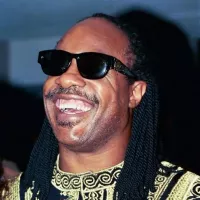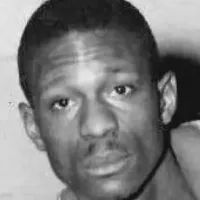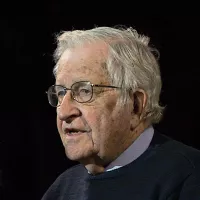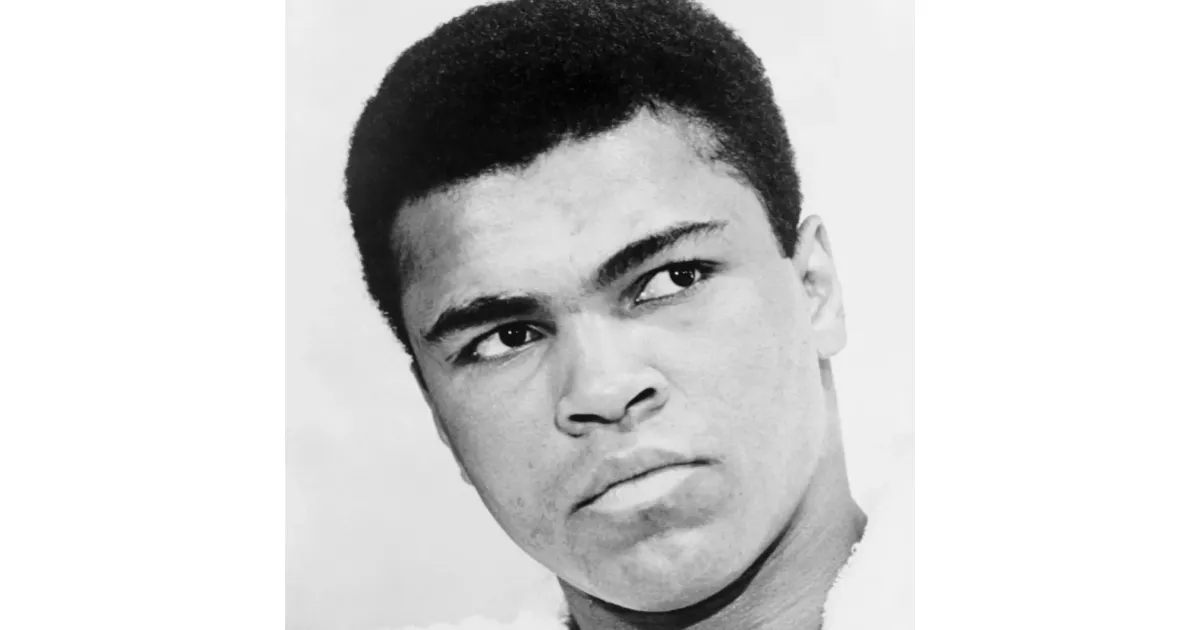How education and upbringing influenced the life of Muhammad Ali. A timeline of key moments.
Muhammad Ali, nicknamed "The Greatest," was an iconic American professional boxer and social activist, widely considered the greatest heavyweight boxer ever. He held multiple titles, including the Ring magazine heavyweight title (1964-1970), undisputed champion (1974-1978), and WBA and Ring heavyweight champion (1978-1979). His impact extended beyond boxing, making him a global cultural icon. He was named Sportsman of the Century by Sports Illustrated and Sports Personality of the Century by the BBC in 1999.
January 17, 1942: Muhammad Ali's Birth
On January 17, 1942, Cassius Marcellus Clay Jr., later known as Muhammad Ali, was born. He would become a famous boxer and social activist, known as "the Greatest".
1955: Impact of Emmett Till Murder
In 1955, the murder of Emmett Till deeply affected the young Cassius Clay, later known as Muhammad Ali. He expressed immense distress over the event, which highlighted the racial injustice of the time.
1959: First Heard of Nation of Islam
In 1959, while fighting in the Golden Gloves tournament in Chicago, Ali first heard of the Nation of Islam.
1961: First Nation of Islam Meeting
In 1961, Muhammad Ali attended his first Nation of Islam meeting, keeping his involvement hidden from the public.
1962: Ali listed as 1-A for Conscription
In 1962, Muhammad Ali was listed as 1-A for conscription in the United States military after registering on his 18th birthday.
1963: Lonnie Williams Moves to Louisville
In 1963, Lonnie Williams' family moved to Louisville, where she first met Muhammad Ali at the age of 6.
August 14, 1964: Ali Marries Sonji Roi
On August 14, 1964, Muhammad Ali married Sonji Roi after a brief courtship. The marriage was short-lived due to disagreements over Sonji's refusal to adhere to the Nation of Islam's expectations.
1964: Ali reclassified as Class 1-Y
In 1964, Muhammad Ali was reclassified as Class 1-Y (fit for service only in times of national emergency) after failing the U.S. Armed Forces qualifying test due to his dyslexia.
1964: Nation of Islam Membership
In 1964, after winning the championship from Liston, the Nation of Islam agreed to publicize Ali's membership. Shortly afterwards on March 6, Elijah Muhammad gave a radio address that Clay would be renamed Muhammad (one who is worthy of praise) Ali (most high).
January 10, 1966: Ali Divorces Sonji Roi
On January 10, 1966, Muhammad Ali and Sonji Roi divorced due to disagreements over her refusal to join the Nation of Islam.
March 1966: Ali Refuses Armed Forces Induction
In March 1966, Muhammad Ali refused to be inducted into the armed forces.
March 1967: Ali Denied Boxing License and Stripped of Passport
In March 1967, Muhammad Ali was systematically denied a boxing license in every state and stripped of his passport.
April 28, 1967: Ali Refuses Induction into U.S. Armed Forces
On April 28, 1967, in Houston, Muhammad Ali refused three times to step forward for his scheduled induction into the U.S. Armed Forces and was arrested, leading to the suspension of his boxing license and stripping of his title.
June 4, 1967: "Cleveland Summit" Support for Ali
On June 4, 1967, a group of high-profile African-American athletes, including Jim Brown, Bill Russell, and Kareem Abdul-Jabbar, assembled with Ali at the Negro Industrial Economic Union in Cleveland for the "Cleveland Summit" to support Ali regarding his convictions.
June 20, 1967: Ali Found Guilty of Draft Evasion
On June 20, 1967, Muhammad Ali was found guilty by a jury of violating Selective Service laws by refusing to be drafted.
August 17, 1967: Ali Marries Belinda Boyd
On August 17, 1967, Muhammad Ali married 17-year-old Belinda Boyd, who later changed her name to Khalilah Ali. They had met years prior when she was a child.
1968: Birth of Maryum "May May" Ali
In 1968, Muhammad Ali and Belinda Boyd (Khalilah Ali) had their first child, a daughter named Maryum, also known as "May May", who would later become an author and rapper.
1969: Ali Films Sparring Match Against Rocky Marciano
In 1969, Muhammad Ali filmed sparring matches against retired champion Rocky Marciano for a privately staged fantasy fight.
August 11, 1970: Ali Granted Boxing License in Atlanta
On August 11, 1970, Muhammad Ali was granted a license to box by the City of Atlanta Athletic Commission, paving the way for his comeback.
October 1970: End of Ali's Boxing Ban
In October 1970, Muhammad Ali's boxing ban came to an end, after he was unable to fight since March 1967.
1970: Birth of Jamillah and Rasheda Ali
In 1970, Muhammad Ali and Belinda Boyd (Khalilah Ali) had twins, Jamillah and Rasheda.
1970: Fantasy Fight Against Rocky Marciano Shown in Movie Theaters
In 1970, edited versions of the simulated fight between Muhammad Ali and Rocky Marciano were shown in movie theaters, with differing outcomes for U.S. and European versions.
March 8, 1971: Ali vs Frazier Fight of the Century
On March 8, 1971, Muhammad Ali and Joe Frazier's first fight, held at Madison Square Garden, was dubbed the "Fight of the Century" due to the immense excitement surrounding the bout between two undefeated fighters.
June 28, 1971: Supreme Court Overturns Ali's Conviction
On June 28, 1971, the Supreme Court of the United States overturned Muhammad Ali's conviction in Clay v. United States due to the appeal board's lack of stated reasons for denying him conscientious objector status.
1971: Ali and Wilt Chamberlain Fight Cancelled
In 1971, Muhammad Ali influenced Wilt Chamberlain into calling off a scheduled boxing match by taunting him, leading Chamberlain to abandon what the Los Angeles Lakers owner termed "this boxing foolishness."
1971: Ali begins Training in Pennsylvania
In 1971, Muhammad Ali started training at a farm near Reading, Pennsylvania.
1971: Ali's Conviction Overturned
In 1971, Muhammad Ali's conviction for refusing to be inducted into the armed forces was overturned.
1971: Ali's Case Reviewed by U.S. Supreme Court
In 1971, The U.S. Supreme Court reviewed Muhammad Ali's case after the Court of Appeals upheld the conviction.
1971: Supreme Court Overturns Draft Evasion Conviction
In 1971, the Supreme Court overturned Muhammad Ali's conviction for draft evasion, allowing him to resume his boxing career after nearly four years of inactivity. This marked a triumph in his legal battle against the U.S. government's attempt to force him to serve in the Vietnam War.
1971: Fight of the Century and FBI Burglary
In 1971, the anticipation for Ali's "Fight of the Century" with Frazier was used by the Citizens' Commission to Investigate the FBI to pull off a burglary at an FBI office, exposing the COINTELPRO operations that included illegal spying on activists involved with the civil rights and anti-war movements, including Ali.
1972: Hajj Pilgrimage to Mecca
In 1972, Ali went on the Hajj pilgrimage to Mecca, which inspired him giving him a different outlook and greater spiritual awareness.
1972: Birth of Miya Ali
In 1972, Miya Ali was born to Muhammad Ali from an extramarital relationship with Patricia Harvell.
1972: Ali Establishes Training Camp in Deer Lake
In 1972, Muhammad Ali established his training camp in Deer Lake, Pennsylvania, where he trained for all his fights until the end of his career.
1972: Ali Wins Six Fights
In 1972, Muhammad Ali won a total of six fights after fighting Jerry Quarry, and had a second bout with Floyd Patterson, and faced Bob Foster.
1973: Ali Wears "People's Choice" Robe
In 1973, Muhammad Ali wore a "People's Choice" robe given to him by Elvis Presley during two bouts he had with Joe Bugner and Ken Norton.
January 28, 1974: Ali vs. Frazier Rematch at Madison Square Garden
On January 28, 1974, Muhammad Ali had a rematch with Joe Frazier at Madison Square Garden, after Frazier had recently lost his title to George Foreman.
June 1974: Birth of Khaliah Ali
In June 1974, Muhammad Ali and Wanda Bolton (Aaisha Fletcher) had a daughter, Khaliah.
October 30, 1974: The Rumble in the Jungle
On October 30, 1974, Muhammad Ali fought against heavyweight champion George Foreman in Kinshasa, Zaire, in a bout nicknamed The Rumble in the Jungle. At the time, almost no one gave Ali a chance of winning.
1974: Visited Palestinian Refugee Camp
In 1974, Ali visited a Palestinian refugee camp in Southern Lebanon and declared support for the Palestinian struggle.
1975: Ali Buys Home in Michigan
In 1975, Muhammad Ali and Lonnie Williams bought their home in Berrien Springs, Michigan.
1975: Recollection of Olympic Medal Incident
In his 1975 autobiography, Muhammad Ali recalled throwing his gold medal into the Ohio River after being refused service at a whites-only restaurant following his return from the Rome Olympics in 1960. However, this story was later disputed.
September 1976: Ali Wins Controversial Decision Against Norton, Announces Retirement
In September 1976, Ali fought Ken Norton for the third time at Yankee Stadium and won a controversial decision. Ringside commentators favored Norton. Following the fight, Ali announced his retirement from boxing to practice his faith, having converted to Sunni Islam.
1976: African Boycott of the 1976 Olympics
In 1976, African countries boycotted the Olympics in protest of Apartheid in South Africa.
December 1977: Birth of Laila Ali
In December 1977, Muhammad Ali and Veronica Porché had their second daughter, Laila Ali, who later became a professional boxer.
1977: Dedication to Helping People
In 1977, Ali stated that after retirement, he would dedicate his life to helping people, charitable causes, uniting people, and making peace.
1978: Revealed financial status and net worth estimate
In 1978, Ali revealed that he was "broke" and several news outlets reported his net worth to be an estimated $3.5 million (inflation-adjusted $17 million). The press attributed his decline in wealth to several factors, including taxes consuming at least half of his income, management taking a third of his income, his lifestyle, and spending on family, charity and religious causes.
1978: Subject of British television program This Is Your Life
In 1978, Ali was the subject of the British television program This Is Your Life when he was surprised by Eamonn Andrews. Ali was also featured in Superman vs. Muhammad Ali, a 1978 DC Comics comic book pitting the champ against the superhero.
1978: Visited Bangladesh and Participated in The Longest Walk
In 1978, following his loss to Spinks and before winning the rematch, Ali visited Bangladesh and received honorary citizenship. In the same year, he participated in The Longest Walk, a protest march in the United States in support of Native American rights.
1979: Guest starred in an episode of Diff'rent Strokes
In 1979, Ali guest starred as himself in an episode of the NBC sitcom Diff'rent Strokes.
1980: Diplomatic Mission to Africa
In early 1980, Ali was recruited by President Jimmy Carter for a diplomatic mission to Africa to persuade African governments to join the US-led boycott of the Moscow Olympics.
January 19, 1981: Talked Man Down from Ledge
On January 19, 1981, in Los Angeles, Ali talked a suicidal man down from jumping off a ninth-floor ledge.
1981: End of Training at Deer Lake Camp
In 1981, Muhammad Ali ended his training at Deer Lake camp at the end of his career.
1981: Retirement from Boxing
In 1981, Muhammad Ali retired from professional boxing. Following his retirement, he dedicated his time to religion, philanthropy, and activism.
1982: Lonnie Becomes Ali's Caregiver
In 1982, Lonnie Williams became Muhammad Ali's primary caregiver, with Ali supporting her graduate studies at UCLA.
1984: Endorsed Ronald Reagan
In 1984, Ali announced his support for the re-election of United States President Ronald Reagan, citing Reagan's support for keeping "God in schools".
1985: Visited Israel to Request Prisoner Release
In 1985, Ali visited Israel to request the release of Muslim prisoners at Atlit detainee camp, a request that was declined.
November 19, 1986: Ali Marries Lonnie Williams
On November 19, 1986, Muhammad Ali married Yolanda "Lonnie" Williams, who had known him since childhood. Lonnie became his primary caregiver and later managed his intellectual properties.
1986: Ali and Porché Divorce
By 1986, Muhammad Ali and Veronica Porché divorced due to Ali's continuous infidelity.
1988: Second Hajj Pilgrimage
In 1988, Ali went on another Hajj pilgrimage to Mecca.
1989: Participated in Indian charity event
In 1989, Ali participated in an Indian charity event with the Muslim Educational Society in Kozhikode, Kerala, along with Bollywood actor Dilip Kumar.
1990: Traveled to Iraq and negotiated hostage release
In 1990, prior to the Gulf War, Ali traveled to Iraq and met with president Saddam Hussein in an attempt to negotiate the release of American hostages. Ali secured the release of the hostages, in exchange for promising Hussein that he would bring America "an honest account" of Iraq. Despite arranging the hostages' release, he received criticism.
1994: Campaign to aid Rwandan refugees
In 1994, Ali campaigned to the United States government to come to the aid of refugees afflicted by the Rwandan genocide, and to donate to organizations helping Rwandan refugees.
1996: Lit the flame at the 1996 Summer Olympics
In 1996, Ali lit the flame at the 1996 Summer Olympics in Atlanta, Georgia. This event was watched by an estimated 3.5 billion viewers worldwide.
1996: Lighting of the torch at the Atlanta Olympics
In 1996, Ali's lighting of the torch at the Atlanta Olympics was watched by an estimated 3.5 billion viewers.
1997: Met a lesbian couple and expressed happiness for them
In 1997, after Ali met a lesbian couple who were fans of his, he smiled and expressed happiness for their relationship, as noted by his biographer Thomas Hauser. Ali wanted people to be happy.
1998: Began working with Michael J. Fox for Parkinson's awareness
In 1998, Ali began working with actor Michael J. Fox, who has Parkinson's disease, to raise awareness and fund research for a cure.
2000: Worked with the Michael J. Fox Foundation for Parkinson's Research
In 2000, Ali worked with the Michael J. Fox Foundation for Parkinson's Research to raise awareness and encourage donations for research.
2001: Promoted biopic and contributed to tribute concert
In 2001, Ali promoted his own biopic, Ali, and also contributed an on-camera segment to the America: A Tribute to Heroes benefit concert.
November 17, 2002: Visited Afghanistan as the "U.N. Messenger of Peace"
On November 17, 2002, Ali visited Afghanistan as the "U.N. Messenger of Peace". He was in Kabul for a three-day goodwill mission as a special guest of the UN.
2002: Joint appearance with Michael J. Fox before Congress
In 2002, Ali and Michael J. Fox made a joint appearance before Congress to push the case for Parkinson's research.
2004: Conversion to Sunni Islam
In his 2004 autobiography, Ali attributed his conversion to mainstream Sunni Islam to Warith Deen Muhammad, who assumed leadership of the Nation of Islam and persuaded the Nation's followers to become adherents of Sunni Islam.
2006: Sold name and image for $50 million
In 2006, Ali sold his name and image for $50 million, after which Forbes estimated his net worth to be $55 million in 2006.
June 2007: Received honorary doctorate from Princeton University
In June 2007, Ali received an honorary doctorate of humanities at Princeton University's 260th graduation ceremony.
September 1, 2009: Visited ancestral home in Ireland
On September 1, 2009, Ali visited Ennis, County Clare, Ireland, the home of his great-grandfather, Abe Grady, who emigrated to the U.S. in the 1860s.
February 2013: Rumors of failing health and death
In February 2013, Ali's brother Rahaman Ali said Muhammad could no longer speak and could be dead within days. Ali's daughter May May Ali responded to the rumors, stating that she had talked to him on the phone the morning of February 3 and he was fine.
2013: The Trials of Muhammad Ali Documentary Released
In 2013, the documentary "The Trials of Muhammad Ali" was released, covering Ali's resistance to the draft.
December 20, 2014: Hospitalized for pneumonia
On December 20, 2014, Ali was hospitalized for a mild case of pneumonia.
January 15, 2015: Hospitalized for urinary tract infection
On January 15, 2015, Ali was hospitalized for a urinary tract infection after being found unresponsive at a guest house in Scottsdale, Arizona. He was released the next day.
2018: DNA Testing Reveals Ancestry
In 2018, DNA testing revealed that through his paternal grandmother, Muhammad Ali was a descendant of Archer Alexander, a former slave and the subject of William Greenleaf Eliot's book, "The Story of Archer Alexander: From Slavery to Freedom".
Mentioned in this timeline

Basketball is a team sport played on a rectangular court...

Michael Jordan often known as MJ is a businessman and...

Bill Clinton the nd U S President - served as...
World Wrestling Entertainment WWE is a prominent American professional wrestling...

Stevie Wonder born Stevland Hardaway Morris is a highly influential...

Bill Russell was a dominant American professional basketball player primarily...
Trending

6 months ago Celebrating Chris Hemsworth's Birthday: Iconic Roles from Thor to Extraction and Beyond

9 months ago The Weeknd's Late Night Interview Debut with Fallon, Bart Simpson's Fallon Ignorance.

3 months ago Ghislaine Maxwell Seeks Trump Commutation; Prison Perks Investigated; Giuffre Family Reacts

John Collins born is a Scottish former professional football player and current manager A midfielder by trade Collins notably played...

Noam Chomsky is a highly influential American linguist philosopher cognitive scientist and political activist He revolutionized linguistics with his theory...

Rob Schneider is an American actor and comedian best known for his time as a cast member on Saturday Night...
Popular

Kid Rock born Robert James Ritchie is an American musician...

Melania Trump a Slovenian-American former model has served as First...

XXXTentacion born Jahseh Dwayne Ricardo Onfroy was a controversial yet...

Thomas Douglas Homan is an American law enforcement officer who...

Instagram is a photo and video-sharing social networking service owned...
The Winter Olympic Games a major international multi-sport event held...
